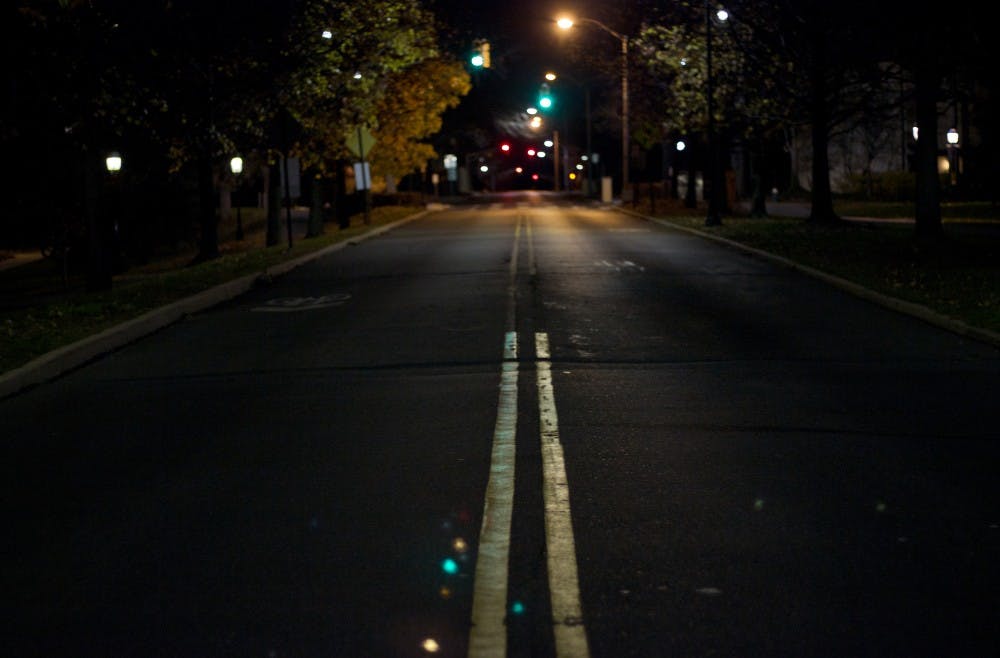The following is a guest contribution and reflects the author’s views alone. For information on how to submit an article to the Opinion Section, click here.
When I read through the University’s message about restrictions on personal electric vehicles (PEVs), a flurry of conflicting thoughts entered my mind.
I do want to recognize and appreciate the concern that the University has for pedestrians’ well-being. I am grateful, in some form, for these restrictions. Near misses happen all too often, and something, at the very least, needs to be done to change this.
Yet ultimately, the University’s approach to this new PEV policy has key flaws. My goal here is not to slam or condemn the University’s new policies, but rather, to encourage dialogue and possibly some reconsideration. Currently, these new and impractical restrictions punish the majority of riders due to the actions of few, while also overlooking students that rely on electric scooters due to their disabilities.
While there may be more near misses on electric scooters when compared to bikes, there also seem to be more scooters on campus — with more scooters come more incidents. Yet there are many responsible riders, and for us to be negatively affected by a minority of irresponsible ones is very unfortunate.
My main concern centers around the use that scooters serve for students with disabilities (like myself). I suffer from inflammatory bowel disease (IBD), a chronic illness that is unpredictable and often unmanageable. Some days, I feel healthy and full of energy. Others, I struggle to get out of bed. There are also some days when I experience both of these feelings.
While I often use my scooter for its ease and convenience, I also use my scooter for mobility purposes. It would be frivolous to get a wheelchair, especially when scooters are available at such an affordable price and can serve multiple purposes. If I wake up from a nap (which I often take because I tend to lack the energy to make it through the day) and do not feel comfortable walking up a hill to class, my scooter provides a reliable and easy alternative. The policy makes exceptions for those with disabilities, but in my case along with many others, there is no way to identify whether the rider is disabled and can fall under the exception.
With the University’s new restrictions, I picture one of the following scenarios occurring:
- I use my scooter anyway, and peers scorn me for appearing to believe that I am above the rules.
- I use my scooter anyway, and am confronted by Public Safety (PSAFE) about my use during restricted hours — I will then have to explain my invisible disability and stress over whether they’ll believe me, and whether I’ll be punished.
- I try to book a TigerAccess vehicle, which is often unavailable at short notice.
- I do not attend class.
Disabled riders, like myself, deserve a sense of privacy and support. IBD is an invisible disability, which means you cannot see that I am disabled by looking at me. It is demoralizing to have to explain my disability to somebody when questioned or to feel like I am being perceived as making something up. In addition to punishing responsible riders, the University is placing disabled riders, like myself, in a very uncomfortable position.
Ultimately, I believe the University has taken too dramatic of action with these policies, not even giving scooter riders the option to adhere to moderate restrictions, such as riding only on main campus roads, as they have with e-bike riders. As it stands, the policy will hurt disabled riders and will only be moderately successful in its goal of safety. In truth, students are unlikely to simply give up the ease and convenience that electric scooters provide. The ban will not stop scooter traffic, it will likely just redirect it to Nassau St., Alexander St., and Washington Rd.: three places with no bike lanes yet significant traffic, posing a threat to scooter riders and pedestrians alike.
There are ways to achieve safety without inconveniencing students or compromising privacy. I fully support the speed limit and the registration of personal electric vehicles. I believe that registration gives the University a great opportunity to give a driver’s ed of sorts to riders, hopefully making an impact on the safety of community members. With this, I believe that the University should give scooter riders a chance by restricting speed and usage criteria on campus before totally eliminating it during prime hours.

I’d like to be able to ride my scooter responsibly and when I need to, and I’m sure my peers, whether they have a disability or not, feel the same. I also want to ensure we minimize near misses and injuries — with all types of vehicles, including construction vehicles and PSAFE vehicles.
We must open up a dialogue with the University on how we can make our community safer and more accessible to all, and I hope that we can move forward together in a way that is best for the community.
Editor’s Note: To allow the author to share private medical details, the author has been granted anonymity.
Please send responses to opinion@dailyprincetonian.com.








